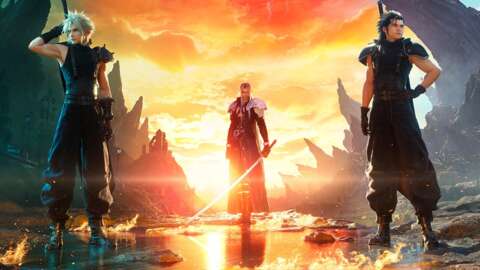
In 2020, Square Enix managed to pull off what many thought impossible by remaking Final Fantasy 7 and delivering a game that reimagined the beloved role-playing classic with modern day gameplay. With gorgeous visuals and an exciting hybrid combat system, Final Fantasy 7 Remake proved to be a huge success. The remake focused on only a small part of the original 1997 release, opting to forgo an epic adventure for a more focused character-driven action-RPG. But we all knew that, inevitably, the story of Cloud, Tifa, Barrett, and Aerith would need to break out of the confines of Midgar and venture beyond, and with that Square Enix would need to address narrative moments that have become so iconic within the culture of video games that even people that haven't played Final Fantasy 7 have an understanding of their impact. Where Final Fantasy 7 Remake narrowed its focus, its follow-up--and the second in a trilogy of games, that will tell the complete Final Fantasy 7 story--Rebirth, necessitates much greater ambition.
The end of Remake indicates that the developers are choosing to both honor the original FF7 but also establish this trilogy as its own unique experience. After hours of hinting at it, in the closing moments of Final Fantasy 7 Remake, Square Enix made the first move in its ambitious narrative gambit by introducing the idea of a divergent timeline and multiverses, where both what has come before can exist but also the characters can forge a new future. It was a controversial move, but one that, from a narrative perspective, means that longtime fans and the general gaming community don't have as comfortable a grip on how things are going to play out as they thought. After playing through about an hour of Final Fantasy 7 Rebirth, I can't say I have any clearer understanding of where things are going and, I suspect, Square Enix will endeavor to keep it that way up until release, when players can experience it firsthand.
My hands-on was split into two distinct slices, with the first being "The Fated Mt. Nibel Mission" and the second being "The Open Wilds of Junon." As the naming alludes to, and fans will know, the former of these is a pivotal moment in the story of Final Fantasy 7--you'd imagine it would be a perfect opportunity to get to grips with where Square Enix might be taking the story. But, actually, it was more of a showcase of how the gameplay has evolved. The latter, seemingly less important at first blush, offered a glimpse at some small changes that have been made to the way Final Fantasy 7's story plays out, emphasis on the small.
Continue Reading at GameSpot* This article was originally published here
No comments:
Post a Comment